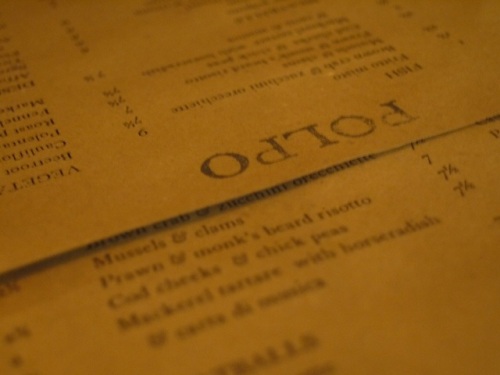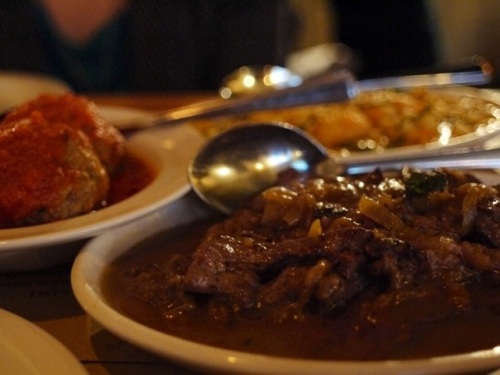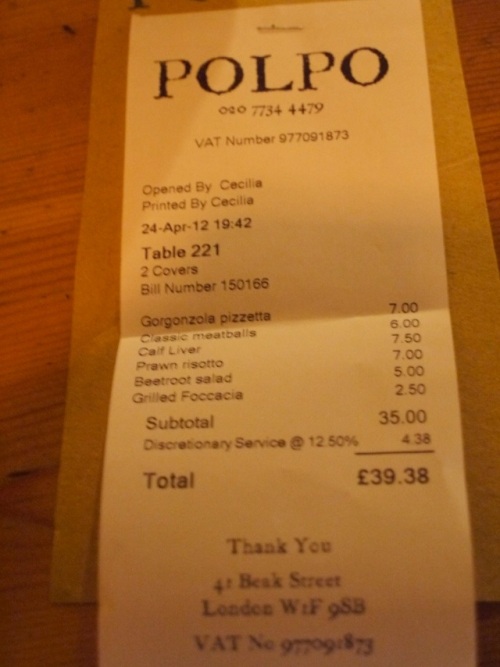The Fox checks his inbox. Linked-in reports that someone wants to join his network. Facebook informs that another has commented on a photo in which he was tagged. The one from Groupon reads something like: “Big bean bag as seen on major TV shows for 70% of the price omfg lolz”. Usually he would delete any correspondence from Groupon as they make him sick. Indeed upon seeing this garish subject line he did vomit a bit in his mouth, but he does need some new furniture and takes a look. The deal looks good. A huge bean bag for £55 including delivery, down from £145. 8 hours left to grab such a great deal. He stops and thinks. £145. For a bean bag. Something doesn’t smell right. He has a quick look online and notices that there are similar bags for similar prices. And he thought he had to act quickly to get such a deal. He breathes. A narrow escape from the Groupon impulse buy.
At inception, Groupon was a good idea. Promoting local businesses with discount vouchers that are only valid if enough people buy them, which allows the company to realise a fixed cost in exchange for exposure that gives them the possibility of enough repeat business to generate enough revenue to surpass this cost in the future. I could really see where this would work. Family run salons needing a much needed boost, new restaurants looking for exposure, even large cash cow businesses can find new audiences through the Groupon arena. It really was a rational alternative to conventional advertising and marketing.
However the issue with Groupon is threefold.
Firstly the customer experience is glorified.
Consumers are so enticed by the unbelievably good deals, coupled with a deadline to purchase the deal that it would not be surprising if impulse buying was commonplace. Furthermore many of these companies are new or unheard of, and so researching into the products themselves before purchase becomes difficult. I remember buying a deal on a suit from a “bespoke tailor”. The deal mentioned that they were featured in GQ and gave the impression that the suit was fully bespoke. Their website looked very classy, and at full price, the suit was worth just short of £1000. The reality was a one-measurement made to measure suit (similar to the far superior Suit Supply offering – who in my opinion make the best quality-to-value suits I have seen). It turned out that my suit, for £500 was not bad. I still wear it today. But it was only worth £500. Had I paid full price, I would have felt ripped off. Did I want a £500 suit? Not really. But I felt enticed enough to purchase it anyway.
Another way the service is glorified is the restrictions with which some companies place on their deals. For example, there was a London Zoo offer not so long ago which could only be used at a time when there was heavy rain in London. Many punters would not have thought to check the weather and went for the deal. To their dismay, they would have seen no animals if they went to the zoo that weekend. Of course you may say that the weather is unpredictable, and that this is priced into the value of the voucher, but that does not detract from the fact that these deals are misleading. The zoo has done a clever thing here in fixing an amount of revenue in advance of bad weather. Without Groupon, chances are that no one would have gone to the zoo that day. If the weather was good, well, they may have lost some revenue by selling a portion of tickets at a discount but that is better than having no revenue. And the weatherman was on their side anyway. This is the case, I imagine, with many of the holiday deals
Second, it devalues personalised service.
Where have quality products and experiences gone these days? I wrote about Taste previously which I believe also devalues quality somewhat. There must be a wave of people who go on Groupon for all services just because it’s cheaper. Need a haircut? Have a look on Groupon. I’m sure there will be a “top salon” where the haircut is cheaper than the one in your local barber. Why wouldn’t you go there? It will offer a consultation with a designer stylist, spray you with expensive products and rub your head with the bark from a Californian redwood. And of course you won’t go there again. The full price is much more than you can afford. But don’t worry, Groupon will have another, equally stylish salon offering a similar deal in 3 months time. What happened to getting to know your hairdresser, catching up with them, letting them learn your hair’s needs? Fair enough if you haven’t found one yet, but never finding one by Groupon-hopping makes me sad.
Lastly, the business model is questionable
Social media entrepreneur Rocky Agrawal has written extensively on why Groupon’s business model is unsustainable and could actually be harmful to local merchants (and itself for that matter).
Rocky compares to Groupon’s business proposition to merchants as a a risky, high cost ad campaign. Groupon is offering, in effect, a high interest loan to merchants. The merchant gets some cash upfront from Groupon hen vouchers are sold, and in return, agrees to give up part of its future revenue to Groupon customers by discounting its product to them. this may appear to be a low risk way of attracting new customers, but many hidden factors come into play. Fundamentally the business is paying for this service. The difference is that instead of paying an upfront service cost, it will realise this cost over time in the form of reduced margins from discounted products. Interestingly, Rocky states that a business that is going under should do a Groupon. It will provide them with upfront cash to manage their day-to-day costs, the possibility of new customers (a fresh start) and the downside is they go bankrupt anyway. Which highlights another issue in its business model – the fact that Groupon is open to abuse.
Furthermore, it seems that Groupon is prone to hold risky, credit unworthy, businesses that may not be able to meet the deals. Groupon itself takes accountability for refunds to unhappy customers, which is great customer service, but pretty naive and open to abuse.
Have a read of Rocky’s posts here.
I have to say, not all Groupon experiences are bad. There have been a couple of things i bought that I was happy with. It’s not that I hate it or anything, just that I would recommend consumers and merchants to be careful when using Groupon. Or maybe I’m just bitter because I don’t own a company that was once worth $6bn and have accumulated a pile of tat I should have never bought…















